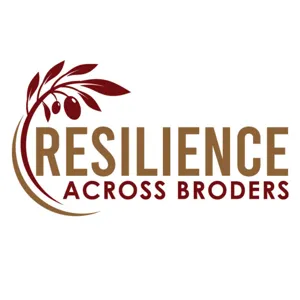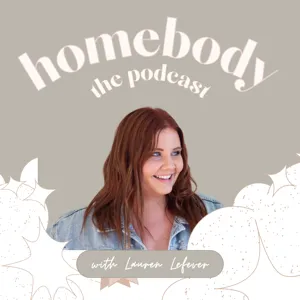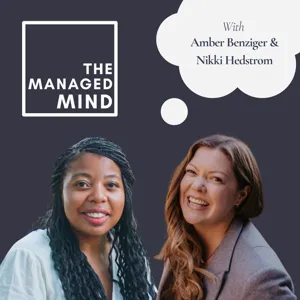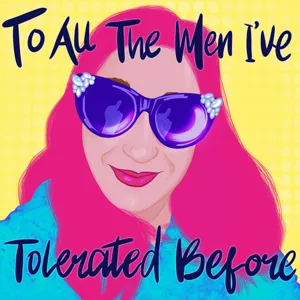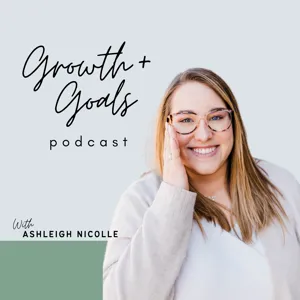Podcast Summary
Protecting Teeth and Skin in Our 20s: Invest in enamel repair toothpaste and mouthwash, choose affordable Kroger brand products, utilize productivity tools, and prioritize self-love for overall health and wellbeing.
Taking care of our teeth and skin, especially during our 20s, is crucial for our overall health and wellbeing. Pronamel's intensive enamel repair toothpaste and mouthwash can help protect and repair acid-weakened enamel, making it a top choice among dentists. Meanwhile, Kroger brand products offer proven quality at affordable prices, allowing us to save money while still providing for our families. Additionally, tools like Canva presentations and podcasts like The Bright Side can make our lives easier and more productive. However, it's important to remember that universal experiences like struggling with acne can lead to feelings of shame and insecurity, but it's essential to remember that everyone goes through it and that self-love and acceptance are key. Acne is not a reflection of our worth, and it's essential to prioritize our mental and physical health above societal pressures to conform to unrealistic beauty standards.
Acne's emotional impact: Acne can deeply impact mental health and self-esteem, causing emotional scars and feelings of worthlessness. Understanding its psychological impact can help us better cope.
Acne is more than just a skin condition. It can deeply impact our mental health and self-esteem. During our formative years when we're prone to social comparison, acne can leave lasting emotional scars. The fear of negative comments and bullying can be devastating, and the physical pain and discomfort can further exacerbate these feelings. Acne is a common condition experienced mainly during puberty and early adulthood due to hormonal changes. While we can't control these hormonal fluctuations, understanding the psychological impact of acne can help us better cope with it. It's important to remember that acne is not a reflection of our worth or hygiene, and self-acceptance is key to overcoming the emotional turmoil it can cause.
Understanding the Biology of Acne: Acne is largely biological and not solely influenced by behavioral factors. Embrace all types of skin and challenge unrealistic beauty standards.
Acne is largely biological and not solely influenced by behavioral factors such as diet or cleanliness. While some people may find relief through clean skincare and a healthy diet, for others, more intense medication may be necessary to address the underlying biological causes. Unfortunately, there are still misconceptions that acne is a sign of being unclean or lazy, perpetuated by media and industries that profit from our insecurities. It's important to remember that over 80% of the population experiences acne at some point in their lives, and it's time to normalize and embrace all types of skin. The constant exposure to highly edited and perfected images in media contributes to unrealistic beauty standards and can lead to increased insecurity. Let's challenge these myths and learn to love and accept our skin for what it is.
Impact of Acne on Mental Health: Acne can lead to feelings of embarrassment, low self-esteem, anxiety, depression, and social isolation, significantly impacting daily life and overall well-being.
Acne can have a profound impact on individuals' mental health and self-esteem. The constant comparison to unrealistic beauty standards, often perpetuated by media and advertising, can lead to feelings of inadequacy, self-consciousness, and embarrassment. Acne can significantly affect daily life, causing individuals to feel embarrassed and self-conscious, leading to low self-esteem and self-image. This, in turn, can impact various areas of life, including social interactions, dating, and even career opportunities. Research suggests that acne is associated with increased levels of anxiety, depression, and social isolation. It takes courage to live with acne and feel comfortable in one's own skin. In 2016, a study found that 88% of people with acne reported feeling embarrassed or self-conscious due to their condition, and it was a major reason why they sought treatment. Acne's emotional impact warrants attention, as it can have significant consequences for individuals' overall well-being.
Acne's far-reaching impacts on social lives, work, and relationships: Acne significantly affects people's social lives, work performance, and interpersonal relationships, leading to feelings of self-consciousness, fear of judgment, and reduced perceived attractiveness.
Acne can have far-reaching impacts beyond just physical symptoms. This study revealed that acne significantly affects people's social lives, work performance, and interpersonal relationships. Sixty-eight percent of patients reported that acne affected their social activities, with many avoiding social gatherings due to feelings of self-consciousness and fear of judgment. Fifty-seven percent of participants noted that acne impacted their work, making it difficult to focus and concentrate. Moreover, seventy-five percent of individuals reported that their acne made it harder for them to date and build relationships, with women experiencing this effect more deeply due to societal beauty standards. Many participants also reported that their struggles with acne stemmed from past experiences of bullying and teasing. Furthermore, participants often felt they failed to live up to the ideal of perfect, flawless skin portrayed in media, leading to increased fear of judgment and a reduction in perceived attractiveness. This cycle of self-consciousness and fear of judgment can contribute to serious mental health conditions like body dysmorphic disorder.
Obsessive focus on perceived flaws in appearance with BDD: BDD can lead to negative self-beliefs, intense shame, anxiety, and impairment in daily life. Seek professional help for mental and emotional aspects, prioritize physical health, and support black-owned businesses for overall well-being.
Body Dysmorphic Disorder (BDD) is a mental health condition characterized by an obsessive focus on perceived flaws in appearance, leading to negative self-beliefs, intense shame, anxiety, and impairment in objective self-appraisal. This condition can significantly impact an individual's daily life and even lead to an addiction to cosmetic procedures. It's essential to recognize that caring about one's image has a profound impact on mental health, and it's natural to be concerned with how we present ourselves to others. However, when these concerns become overwhelming, it can negatively affect our self-esteem and overall well-being. It's crucial to address the mental and emotional aspects of dealing with such issues, and seeking professional help when needed. Additionally, taking care of our physical health, such as protecting our teeth with Pronamel, and supporting black-owned businesses, can contribute positively to our overall well-being.
The struggle for power, acceptance, and self-image in society and personal life: Exposing ourselves to authentic and relatable media can help manage emotional impact of challenges like acne and corruption, and seeking out positive influences and representation can normalize experiences and validate feelings.
Corruption and the struggle for power and acceptance can be found in various forms of society, from the highest echelons of institutions to the most personal struggles with self-image. In the story of the USC medical school dean's secret double life, the investigation uncovers a web of deceit and power. Meanwhile, in the realm of acne, the struggle for acceptance and finding a solution to reduce symptoms can have a profound impact on mental health and self-esteem. It's important to remember that everyone's journey is unique, and finding the right treatment or solution may take time and trial and error. In the meantime, seeking out positive influences and representation can help normalize experiences and validate feelings. Whether it's through podcasts, social media, or the brands we support, exposing ourselves to authentic and relatable media can make a significant difference in managing the emotional impact of acne and other challenges.
The impact of societal pressure on acne: Societal pressure to have perfect skin can lead to stress and insecurity, but focusing on self-care and positive self-talk can help reduce the impact of acne on our lives.
Our obsession with perfect skin, fueled by social media and media at large, can lead to a lot of unnecessary stress and insecurity. Movies like "Lady Bird" and "Euphoria" offer realistic depictions of what it's like for many people, but we often forget that we're not alone in our struggles. It's important to remember that the opinions of others don't define us, and that focusing on what makes us feel best, whether that's activities that make us feel good about ourselves or practices that help us build confidence more holistically, can go a long way in reducing the impact of acne on our lives. The "what-if game," a tool borrowed from cognitive behavioral therapy, can help us challenge negative thoughts and reframe them in a more positive light. Ultimately, it's about creating an online environment where we see ourselves reflected back at us, and focusing on the things that make us feel good, rather than the opinions of others.
Identifying and challenging anxious thoughts: Recognizing and confronting irrational 'what-if' thoughts can help reduce anxiety and improve overall well-being. Seeking therapy and practicing self-worth beyond physical appearance are effective strategies.
Our thoughts significantly influence our behaviors and attitudes towards ourselves and the world around us, and identifying and challenging anxious thoughts can help us lead happier, more fulfilling lives. The "what-if" game is a useful tool to expose the irrationality of such thoughts, which often stem from fear and self-doubt. Acne and anxiety about it can be isolating, but it's important to remember that many people experience similar insecurities. Seeking therapy can provide valuable perspective and help individuals develop self-worth beyond physical appearance. By recognizing that our value is not defined by our skin, we can learn to fake confidence and grow through challenging times.
Discussing Acne's Impact and Normalizing Conversations: Acne affects many and brings physical and emotional challenges. Share this episode, normalize discussions, and try Pronamel toothpaste for oral health.
Acne is a common skin condition with both physical and emotional impacts. While it's important to take care of our skin and oral health, it's equally important to normalize discussions around acne and the mental and emotional struggles associated with it. The speaker encourages listeners to share this episode with those who may benefit from it and invites suggestions for future topics. Additionally, the speaker promotes Pronamel toothpaste and mouthwash for enamel repair and introduces her new podcast, The Bright Side, which aims to bring positivity and inspiration to listeners' lives. The speaker also mentions listening to The Big Take from Bloomberg News for economic insights and a podcast about women's experiences called "Finally a Show."


